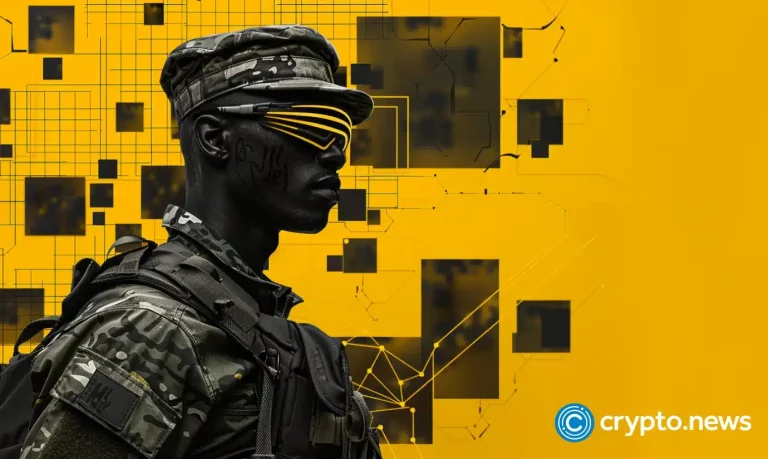The Nigerian fiat currency is witnessing a significant decline in its value against major foreign currencies, and the government is blaming the cryptocurrency.
On February 21, Binance sparked controversy within the Nigerian cryptocurrency community by imposing a cap on the USDT P2P exchange rate as part of compliance efforts.
In response to widespread backlash, the exchange quickly reversed this decision, allowing transactions to resume as usual.
While this action was intended to ease tensions, it may have inadvertently worsened the situation for Binance.
This happened when the government moved to ban cryptocurrency platforms and specifically targeted the Binance website and two other forex trading platforms, citing their connection to inflationary pressures in Nigeria.
Amid growing concerns, several Nigerian Binance users reported difficulties accessing the exchange's app on February 22.
These grievances came to light as the Nigerian government was instructing telecommunications service providers to block access to all cryptocurrency exchanges as part of its efforts to stabilize the country's rapidly depreciating currency.
To allay users' concerns, Binance sent out reassurance emails stating that although its platform experienced disruptions, operations on its app continued without any impact.
The exchange stressed the security of users' funds and reiterated its commitment to maintaining dialogue with local regulatory authorities.
However, the situation escalated further when calls emerged for a complete ban on Binance within Nigeria. Recently, the Nigerian House of Representatives Financial Crimes Committee is looking to question Binance CEO Richard Ting on charges of financing terrorism and money laundering.
Before that, presidential aide Bayo Onanuga criticized the company for its role in setting Nigeria's exchange rates, likening it to usurping the authority of the central bank.
He called on Nigeria's Economic and Financial Crimes Commission (EFCC) to take action against Binance and other exchanges, such as KuCoin and Bybit, in a bid to prevent further manipulation of the Naira.
Meanwhile, local Nigerian cryptocurrency platforms also reported being affected by government restrictions. The Nigerian cryptocurrency community has strongly opposed the government's move to ban cryptocurrency exchanges, denouncing it as another authoritarian response to the challenges facing the country.
However, the Nigerian government has remained steadfast in its decision to ban Binance P2P trading, indicating a widespread crackdown on cryptocurrency trading activities in Nigeria.
The move has raised concerns among stakeholders about its potential negative impact on innovation, investment and financial inclusion in the country. Many fear that the government's regulatory overreach will push cryptocurrency trading underground, depriving Nigerians of access to digital assets and stifling technological progress in the financial sector.
It is worth noting that the Nigerian government previously banned cryptocurrencies in February 2021 before lifting restrictions in December 2023.
Does crypto pose a threat to Naira?
The harsh stance taken by the Nigerian government against cryptocurrencies is not new.
In February 2021, the Central Bank of Nigeria (CBN) issued a directive prohibiting banks and financial institutions from facilitating transactions involving cryptocurrencies. The CBN cited concerns about money laundering, terrorist financing and other illicit activities as the rationale behind the ban.
Despite the ban, Nigeria has remained a hotspot for cryptocurrency trading and adoption, with most of these traders turning to VPNs. The country's tech-savvy youth, disillusioned with traditional financial institutions and attracted to the potential of digital currencies, have flocked to cryptocurrency platforms in droves.
However, recent developments indicate that the government is intensifying its efforts to limit the use of cryptocurrencies. Reports have emerged of authorities cracking down on cryptocurrency exchanges, arresting individuals involved in cryptocurrency-related activities, and freezing bank accounts suspected of facilitating cryptocurrency transactions.
The government's crackdown coincides with a turbulent period for the Nigerian economy, characterized by persistent inflation, currency depreciation, and economic uncertainty.
The value of the naira has been in a downward spiral, losing significant strength against major global currencies such as the US dollar and the euro.
Corruption continues
Observers believe that the government's hostility towards cryptocurrencies stems from its fear of losing control of the financial system. Unlike traditional currencies, which are regulated by central banks and governments, cryptocurrencies operate on decentralized networks, beyond the reach of any single authority.
This decentralized nature of cryptocurrencies challenges the government's ability to monitor and regulate financial transactions, potentially undermining its authority and control.
Furthermore, some analysts believe that the government's crackdown on cryptocurrencies is a knee-jerk reaction to its inability to address the fundamental economic challenges facing the country.
Instead of addressing structural issues such as corruption, inadequate infrastructure, and over-reliance on oil revenues, critics blame the government for scapegoating cryptocurrencies as a convenient distraction from other failures.
At the time of writing, the cost of almost all basic goods – from cement to bottled water – in Nigeria has soared, and civil servants are now struggling to afford basic needs such as food and clothing.
In recent weeks, Nigerians have taken to the streets carrying placards to hold peaceful protests in favor of cryptocurrencies. For them, cryptocurrencies provide a lifeline in an economy plagued by severe corruption, inflation, lack of accountability by government officials, and currency instability.
Despite the current gloom and uncertainty caused by the government's Web 3 sphere in Nigeria, cryptocurrencies will continue to see adoption by young people, as they provide a way to preserve wealth, access global markets, and engage in financial transactions with greater privacy and independence.
In response to the crackdown, some members of Nigeria's cryptocurrency community have called for more advocacy and education to enhance understanding of cryptocurrencies among policymakers and the public.
They say a more nuanced approach to regulation is needed. A focus on investor protection and market integrity can unlock the full potential of cryptocurrencies while mitigating the risks associated with their use.

